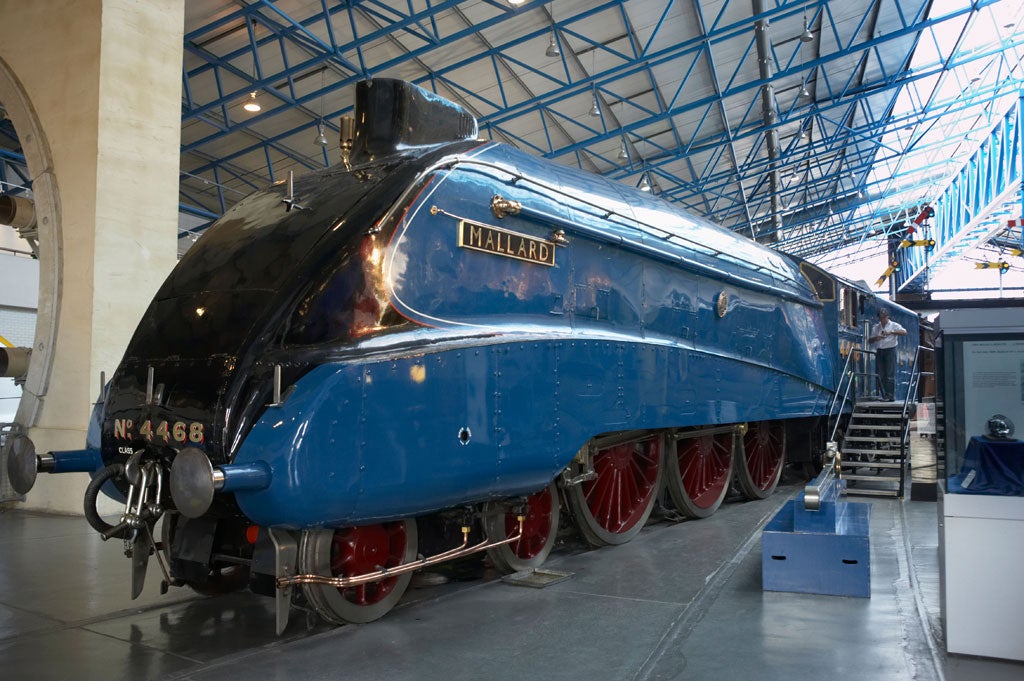Simon Calder: A new age of the train is dawning across Europe
The man who pays his way

You might imagine that the words "Britain" and "fastest trains in Europe" last belonged in the same sentence just before the Second World War, when the UK competed with Germany for the fastest steam locomotive. Yet for five years from 1976, the only place in Europe to board a train officially defined as high-speed – meaning 125mph or more – was Britain.
The relics from our brief golden age of the train are still dutifully shuttling along Brunel's Great Western Line, while the Continent has overtaken us. Three decades ago, the first Train à Grande Vitesse revolutionised rail travel in France. Tomorrow, the French rub more salt in the wound when another arc in the TGV network opens.
The first TGV departed from the Gare de Lyon in Paris for Lyon. Initially the high-speed line ended a short way before Dijon. Appropriately, Dijon is the starting point for the link that starts tomorrow. The Rhine-Rhône high-speed line may be only 90 miles long, but that makes it longer that the UK's entire stock of top-speed track, from London to the Channel Tunnel entrance at Folkestone. And the new line will unlock dramatic time savings, from Ashford to Zurich or from Frankfurt to Marseille.
The shiny new line runs north-east from France's mustard capital to the city of Mulhouse, where Swiss-bound trains turn south. From tomorrow, Zurich will be only four hours from Paris, and eight from London – with time to replenish at Le Train Bleu brasserie in the Gare de Lyon.
Another rail revolution is under way, at last: the recognition that the kind of competition that has transformed aviation in Europe can work on the ground.
Until now, if you planned ahead, you could fly between Sweden's two biggest cities for less than the price of a standard rail ticket – but, absurdly, only if you changed planes in London. Tomorrow, Sweden's state railway gets a wake-up call when a rival train operator starts running between Stockholm and Gothenburg. And on the main city-pair in Austria, from Vienna to Salzburg, fares are about to plummet. A new firm, Westbahn, is halving the standard €48 fare.
The new service opens up the prospect for British travellers of a two-centre break – combining the Austrian capital and the home of The Sound of Music for barely more than the price of one.
This is new territory for many Continental nations. So where are they seeking expertise? Britain, according to Virgin Trains' chief executive, Tony Collins:
"We get lots of invites from European governments asking 'Can you help us with our railways?' We can always learn from other operators, but they are learning an awful lot from us."
Although the process of rail privatisation in the 1990s was profoundly flawed, we now benefit from the lowest fares in Europe (and also the highest, as well you know). On routes such as Birmingham to London you can choose between speed (Virgin), economy (London Midland) and scenery (Chiltern Railways).
ppp Just across the frontier in Bavaria, German Railways is going one better – by going into competition with itself. Europe's biggest train company has noted that two great cities, Prague and Munich, are just 200 miles apart as the Airbus flies, yet the rail trip between them takes almost six hours. So German Railways tomorrow launches a fast and frequent inter-city bus service that undercuts both the rail fare and the journey time, with a flat fare of €29 in advance or €59 if you are a "walk-up" customer. That is the kind of bus replacement service we could all do with.
Reaching the end of the line
The reason so many new train services start tomorrow: Europe's annual timetable change takes place. And why do the Continent's trains alter on the second Sunday in December, of all dates? All because of the French ski season.
A few years ago, Europe reached a consensus to synchronise changes in train times on New Year's Day. But French Railways demanded an earlier date, because its ski services started a week or two before Christmas.
The awkward date has complicated compilation of Thomas Cook's European Rail Timetable (£13.99) – whose editor has also had to cope with 85 per cent of French rail schedules changing tomorrow.
Another great purveyor of rail information, the Man in Seat61, is appalled by the imminent end of passenger trains between Italy and Slovenia. The very last such service, the Venice-Budapest sleeper, leaves tonight.
"Its departure brings down an Iron Curtain across the border from Trieste in the Adriatic," says the train world's equivalent of Top Gear's Stig. "For the first time since the war, the old Simplon route from London and Paris to Belgrade and Istanbul, as used by Agatha Christie's Simplon-Orient-Express, becomes impassable."
Join our commenting forum
Join thought-provoking conversations, follow other Independent readers and see their replies
Comments